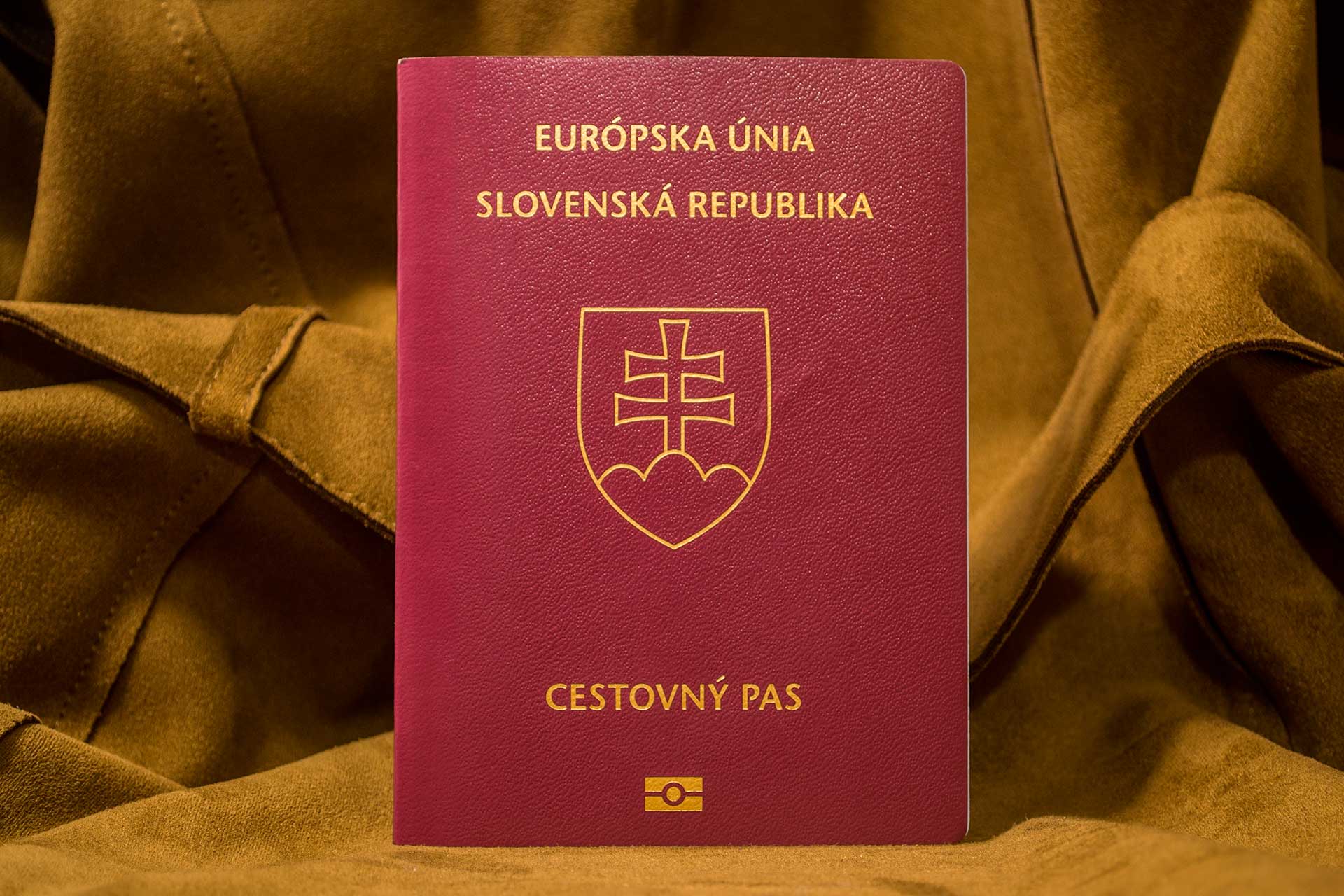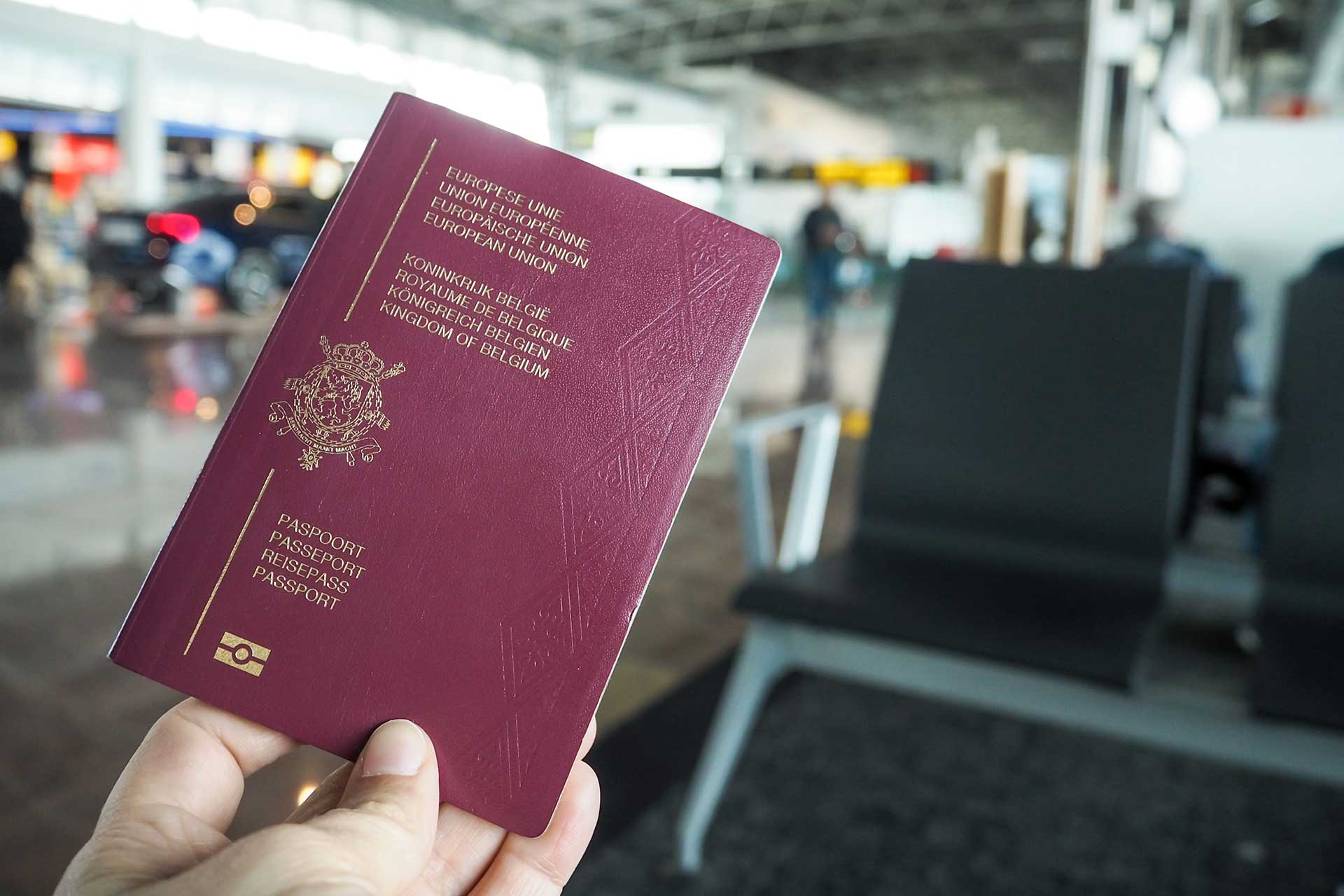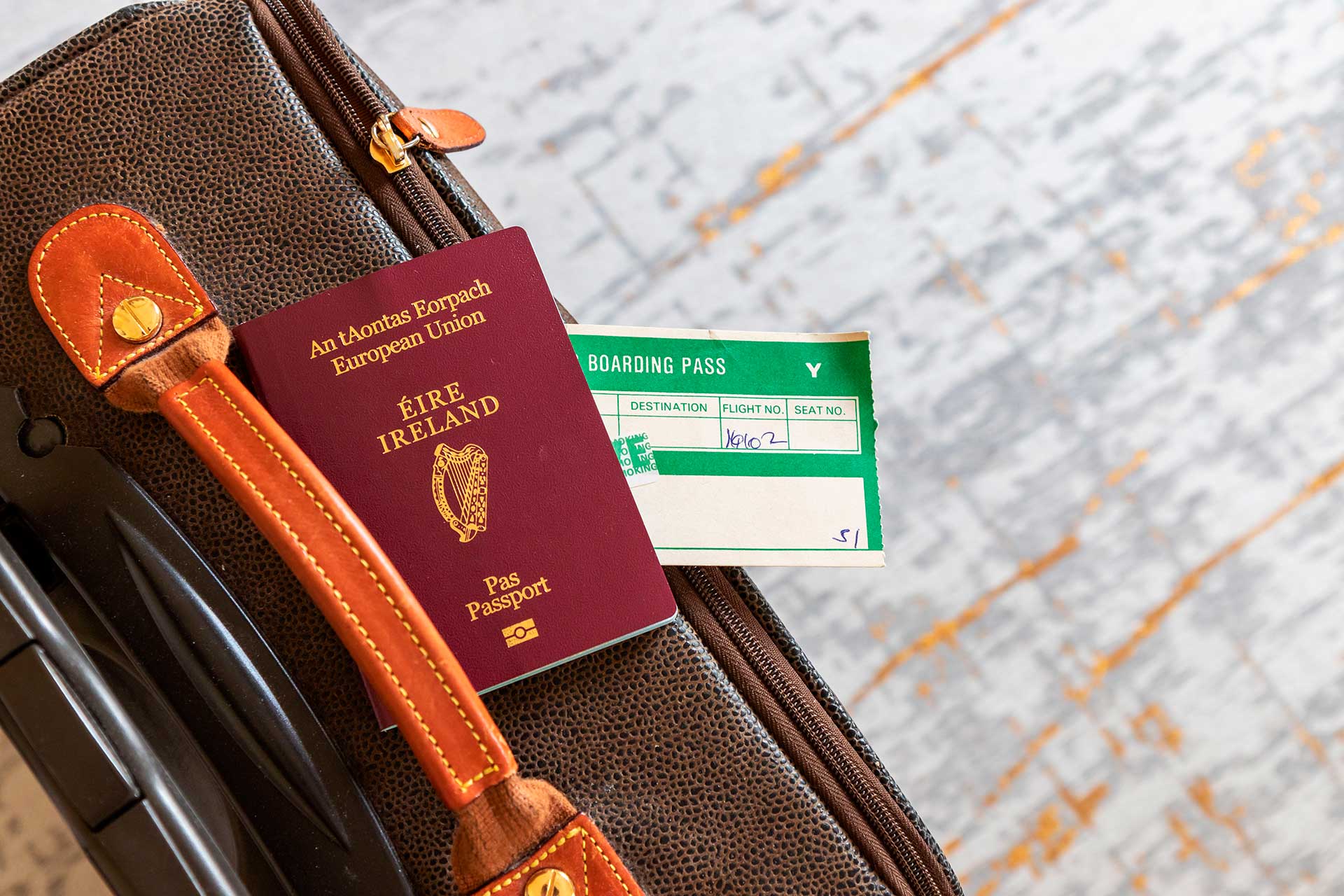- Advantages of Polish citizenship
- Main ways of obtaining a Polish citizenship
- Requirements and procedure for obtaining a Polish citizenship
- How much time and money is needed to obtain citizenship of Poland
- What doesn't work: how you can't get a Polish passport
- Dual citizenship in Poland
- Refusal in obtaining a Polish citizenship: main reasons and solutions
- How to obtain a Polish passport quickly and without mistakes
With Polish citizenship, you can live, do business and freely apply for a job anywhere in the European Union without restrictions. The state offers more options for obtaining a passport than Western European countries, including a simplified procedure. For this reason, Polish citizenship is more popular than German, French, Spanish or Italian citizenship, and is no worse than the above mentioned. With it you can also visit more than 160 countries without a visa and enjoy equal rights with citizens of EU countries.
Advantages of Polish citizenship
The Polish passport provides a number of opportunities not available to third country nationals:
- unlimited residence in any EU/EEC state with free access to job vacancies, right of business activity and choice of tax residency;
- visa-free entry to more than 160 countries of the world;
- legal assistance and protection by Polish and European diplomatic missions abroad;
- wider access to European financial products, education, business and startup support programs, medical services in any EU country;
- retention of primary citizenship, no need to reside in Poland or the EU;
- the right to invite family members from abroad to live together with the prospect of obtaining a Polish passport for them.
It usually takes 7 years to obtain Polish citizenship by naturalization. But there is such an option as repatriation - registration of EU passport by roots, which takes about a year. In addition to Poland, Romania, Slovenia and Bulgaria offer similar opportunities. To find out whether you can obtain EU citizenship in this way, turn to migration lawyers for a free consultation.
Main ways of obtaining a Polish citizenship
Poland offers foreigners several options for obtaining citizenship - they have a number of differences in terms and conditions. In all cases, you will have to learn the language (except for certain age categories and people with disabilities), as well as not to pose a threat to public and national security. There is no swearing-in procedure when applying for Polish citizenship.
Below are the ways of obtaining a Polish passport, which are available to applicants from third countries.
Naturalization
The longest and most difficult way to obtain Polish citizenship is by naturalization - it requires a long continuous residence in the country (habitancy) with a residence permit and then with a permanent residence permit. A prerequisite for this is integration into society - knowledge of the Polish language, culture, social and political institutions. This method is suitable for everyone, while others are designed only for certain categories of immigrants. The minimum time of residence in the country is usually 7 years, and for the entire period of time you will need grounds for settlement in the country. Among the possible reasons are:
- Employment with a local employer. Employment requires a voivode's permit, which is issued if the vacancy cannot be filled by EU citizens. However, representatives of professions approved as priorities for the economy do not have to obtain it. Admission to work is given on application for a residence permit.
- Business. Residence permit for the purpose of individual entrepreneurship cannot be issued - this type of employment is allowed, but only to those who have already become a resident on other grounds. Business residence permit is granted only to shareholders, general partners, board members, founders, trustees/commercial representatives of local business companies (limited, LLC, JSC). The law details the requirements for the minimum authorized capital of the last mentioned, the volume of their annual profit, and the value of assets.
- Volunteering. You will need to participate in the European Social Initiatives Program, confirmed by a contract with a local organization. It must have been registered at least 5 years ago. The contract specifies the conditions of accommodation and material support (but not salary or income), the subject of the volunteering activity, and the procedure for reporting on it.
- Research. Those who have concluded a contract with a scientific institution for the performance of research/experimental development work can apply for a residence permit. The contract defines the material support, living conditions and conditions of acceptance of the results obtained. The contract is accompanied by documents confirming the candidate's competence (education diploma, license, copy of work record book).
- Study/professional training. The basis for obtaining a residence permit may be the beginning or continuation of stationary training in the country, and the law does not define what level. An enrollment order will be required, and the receiving institutions (except academies, universities, seminaries, research institutes) will request permission from the Polish Ministry of Education to admit the foreigner.
- Job search or starting a business. If you have obtained a diploma from a Polish educational institution or completed scientific research, you can extend your residency in order to find employment in your specialty or register a business. For this purpose, graduates with a diploma are granted a residence permit for 1 year, scientists with a certificate of acceptance of scientific works - for 9 months. Upon expiration of the residence permit, it is necessary to re-issue it on another basis.
- Religious activity. Foreign ministers of churches and monastic orders officially registered in Poland become residents by submitting an application from the host country or a certificate of membership in a religious organization. They are allowed to stay in the country only for the fulfillment of their statutory tasks.
- Internship after studies. Anyone who has completed higher education in any country not earlier than 2 years ago may become a resident for the purpose of acquiring initial professional skills with a Polish employer. A contract must be concluded with the employer, which specifies the internship program, practical training components, living conditions and material support. The latter does not necessarily take the form of a salary - it can be a reimbursement of expenses or direct maintenance.
- Family reunification. Polish residence permit is granted if you come to live together with your spouse, minor child (including spouse's adopted child) or parent/guardian/spouse of a parent (if you are a minor). The host person must have a residence permit/permanent residence permit, and if he/she holds a Polish passport, his/her minor child is granted citizenship without settling. In case of death, divorce or separation from the Polish citizen/s, it is possible to obtain the same status again after the end of the first residence permit due to family reunification.
- Humanitarian reasons. Victims of certain crimes (human trafficking, labor exploitation, domestic violence) and their witnesses, persons requiring urgent and long-term medical treatment, children left in the country unaccompanied by their parents may apply for a residence permit. In different cases, a statement from the juvenile service, investigative or law enforcement agencies, a medical report, a police report will be required - and the list of circumstances requiring residency is not limited. Refugee status or subsidiary protection is not a residence permit, but also leads to the issuance of a passport.
Repatriation
Repatriation is a way to obtain citizenship on the basis of Polish roots by proving the presence of ancestors of a specified nationality. These can be:
- father/mother;
- grandparents
- great-grandparents and/or great-great-grandparents - at least two on one side or the other.
The nationality of the ancestors can be confirmed by any documents indicating that they belonged to the Poles, for example, cultivated their traditions, customs, language. Where exactly the Polish relatives lived does not matter. Given that the borders of the republic have been subjected to changes in the past, and its population to deportations and repressions or emigrated from the country, Polish citizenship by roots is quite accessible. Family memories of Poles or Catholics, as well as a distinctive surname, are reasons to verify ancestry with the help of immigration lawyers.
Another condition of the program is that you must have a registration (residence permit) in Armenia, Azerbaijan, Georgia, Kazakhstan, Kyrgyzstan, Tajikistan, Uzbekistan or the Asian part of the Russian Federation. Those who live in other territories and want to take advantage of the possibility of repatriation will have to move to these countries and regions. This type of citizenship is not suitable for everyone, but if your origin is confirmed, it will not be necessary to comply with the requirement for the period of residence in the country, the most complex procedures will be passed at the consulate, and after - issued a special visa, with which you will enter Poland for passport registration.
Citizenship with a Pole Card
The Pole Card is a document that allows you to acquire Polish citizenship by roots, and you may not even have ancestors of the specified nationality, it is enough to confirm your personal belonging to it. To become a Polish citizen through the Pole Card, you must fulfill the following conditions:
- to know Polish at the everyday level, which is checked by means of an interview;
- to declare at the consulate by means of a statement your belonging to the Polish nation;
- have the same ancestors as in the case of repatriation or provide a certificate from a diaspora organization about your active participation in the promotion of the language, culture and interests of the Polish community during the last 3 years;
- declare in writing to the consulate that you have no ancestors repatriated from 1944 to 1957 from Poland to the USSR.
Having fulfilled all these requirements, you will receive a Pole Card, which provides a number of benefits on the territory of the Republic and in its diplomatic missions. For example, discounts on public transportation, exemption from consular fees and fees for visiting museums, the right to employment and business on an equal footing with citizens of the country, the ability to qualify for certain types of social assistance. But the main thing is that the Pole Card gives the basis to immediately request a residence permit, bypassing the residence permit. And after living in Poland for a year with the status of permanent resident, you can get its passport.
Get EU citizenship fast and easily
Learn how to become an EU citizen through simplified programs
Marriage
Marriage is a way to obtain Polish citizenship in the order of reduced naturalization, for which you will have to meet the following conditions:
- have a registered marriage relationship with a citizen/s of the Republic for at least 3 years;
- to live in Poland for 2 years on the basis of residence permit together with a citizen spouse for the purpose of reunification with him/her;
- upon fulfillment of the above two requirements, obtain a permanent residence and live with this status for another 2 years.
In this case, the total period of residency is reduced to 4-5 years, depending on how soon after marriage to a Polish citizen/s you enter the country as a resident.
Obtaining citizenship through the President of Poland
On an individual basis, a Polish passport can be granted without any requirements at the initiative of the President of the Republic. The head of state himself determines the criteria for admission to citizenship in each individual case outside the general legislative procedures.
This option looks the most attractive, but the president, as a rule, makes a decision based on personal merits to the republic, international prestige, fame and achievements of the candidate. Therefore, only a few people can use this method.
Naturalization is suitable for everyone, but it is complicated and takes a long time. There is a simpler and faster way to obtain EU citizenship with minimal requirements for the applicant. Immigration lawyers will tell you in detail what you need for this, how to choose the best program and take part in it.
Requirements and procedure for obtaining a Polish citizenship
There are general requirements for obtaining a Polish passport - it is not issued to those who are dangerous to national interests and public order. Irrespective of the chosen option of acquiring citizenship, you will need to submit the following documents:
- certificate of proficiency in Polish at the level of B1 or a school certificate in this language (in case of repatriation, an interview with the consul is sufficient);
- certificates of family composition, civil status (birth certificates of children, marriage, divorce, spouse's ID card) - if available;
- if applicable - documents of descent from Polish citizens indicating the circumstances of their loss of Polish citizenship;
- certificates of income, professional achievements, social activities, educational certificates/diplomas;
- latest photos 3.5 x 4.5 cm;
- travel passport, in some cases (refugees, for humanitarian reasons) a national passport is sufficient instead.
For children, the application is submitted by the parents or one of them with a notarized consent from the other (if the latter has not been deprived of his/her rights in relation to the child). A Polish passport looks like a book with 40 paper pages and one polycarbonate page containing a machine-readable strip. The validity of the document is 10 years, and half as long for children under 12 years of age.
Requirements for naturalization
Polish citizenship by naturalization is the most difficult to obtain due to the impressive list of required documents. In addition to those mentioned above, you will need:
- a dossier confirming the basis for residency (family reunification, work, business, etc.);
- residence permit card and then (or immediately, if applicable) permanent residence permit;
- certificate of absence of criminal record - upon request;
- travel insurance policy with the amount of coverage of 30,000 EUR, and by the time of naturalization - participation in the Polish social insurance system;
- documents on the right to use the housing (cadastral extract, rental agreement, hosting agreement);
- PESEL identification number;
- certificates of income.
To obtain Polish citizenship through marriage, everything is the same, the only difference is the period of residence, which in this case is shorter. The naturalization process consists of the following steps:
- Selecting the basis for residence permit and collecting documents.
- Requesting a national visa at the consulate.
- Entering the country and registering at the place of residence (meldunek) and obtaining a PESEL number.
- Submission of the application for residence permit to the voivode, passing the interview, waiting for the Karty pobytu.
- Extension of residence permit up to 4 years, study at a language course.
- Registration of a residence permit and living with this status in Poland for up to 3 years, obtaining a certificate of Polish language proficiency.
- Submitting an application for naturalization to the voivode, waiting for a certificate of citizenship (up to 2 months).
- Registration of a Polish internal passport.
Requirements for obtaining a passport by repatriation
To apply for Polish citizenship by repatriation, you will need a birth certificate indicating your descent from Poles up to and including the third tribe. At the same time, you need to provide all evidence of their national identity - it can be recorded in metric books, civil status acts, military registration documents, personal files at the place of work/service, materials of court and investigation cases. If documentary evidence has not survived in the family, you will have to look for it in state archives (sometimes of different countries). You must also have registration in certain republics of the former USSR or Asian part of Russia.
The procedure for obtaining Polish citizenship by repatriation is as follows:
- Analyze your pedigree and collect documents confirming your ancestry.
- Acquisition of language skills, if you do not have them (taking courses).
- Applying to the consulate for a repatriation visa, going through an interview in Polish.
- Obtaining a visa.
- Entering Poland, after which citizenship is considered acquired.
- Applying to the voivode for a certificate of citizenship.
- Obtaining a PESEL number, issuing a passport.
Polish passport with a Pole Card
Polish citizenship by Pole Card is available to more people than repatriation, but the procedure itself looks more complicated and takes longer. You can choose to prove:
- your descent from Poles up to the 3rd knee;
- 3-year participation in the promotion of the interests of the diaspora, popularization of the Polish language and culture.
The last option is confirmed by a certificate from a compatriot community, each of which is included in the official database and provides the authorities of the republic with the necessary information about its members. Thus, not only those who have ancestors from Poland, but also those who feel their Polish identity, even in the first generation, can apply for citizenship with the help of Pole Card. The procedure for acquiring citizenship on this basis is as follows:
- Analyzing the family tree, collecting documents about ancestors or membership in the Diaspora and participation in its activities with obtaining a certificate after 3 years.
- Acquisition of language skills.
- Submitting to the consul a declaration of belonging to the Polish nation and a declaration of absence of ancestors repatriated from the territory of the Lithuanian, Belarusian, Ukrainian and Russian Socialist Republics in 1944-1957.
- Passing an interview in Polish at the consulate, obtaining a CP and national visa to enter the country.
- Obtaining a PESEL number.
- Registration of the residence permit with the voivode.
- Living in Poland as a permanent resident for up to 1 year, passing the language exam at the level of B1.
- Applying for citizenship.
- Passport issuance.
Citizenship by presidential decision
A Polish passport is granted on an individual basis outside the general rules. The initiator is the president, but the interested body can also make a request for a Polish passport for a candidate for citizenship. The procedure is not regulated and is available to only a few people.
How much time and money is needed to obtain citizenship of Poland
The terms of obtaining Polish citizenship vary depending on the chosen method:
- Naturalization: the minimum term is from 7 years.
- Marriage to a Polish citizen: the minimum term is from 4 years.
- Pole Card: the process takes an average of 1.5 years.
- By decision of the President: the timeline is determined individually.
The following amounts (EUR) will be required for the main stages of naturalization, including through marriage:
- long-term visa - 135/for citizens of some countries less or free of charge;
- monthly insurance premium - 34;
- residence permit for one year and its extension - 80/100 for employment purposes;
- permanent residence - 150;
- residence permit/permanent residence card - 24;
- Polish B1 level exam with a certificate - 170;
- naturalization - 65;
- passport - 33.
Repatriation is the cheapest - you will need 13 EUR to obtain a certificate of citizenship from the voivode and 33 EUR for a passport, not counting individual preparation costs. You will have to spend the same amount to obtain a Polish passport by presidential decision.
To apply for citizenship with a Pole card, you will need to plan for the following costs (EUR):
- monthly insurance premium - 34;
- residence permit- 150;
- residence permit card - 24;
- Polish B1 level exam with a certificate - 170;
- naturalization - 65;
- passport - 33.
Prices for Polish language courses vary depending on the form of study and institution. You can attend them in Poland or abroad, take them online, engage in self-study with the methodological support of a teacher, choose a convenient schedule.
What doesn't work: how you can't get a Polish passport
Polish citizenship is not granted to:
- to children born to foreigners on the territory of the republic (but if both parents do not have any citizenship, the child becomes a Polish citizen);
- upon purchase of real estate, including residential property;
- as a result of residence due to temporary protection - this status does not count towards the period of residence for obtaining a residence permit, which is required for naturalization;
- through investments - it is only possible to apply for a residence permit in connection with a business and make investments in a local company, which eventually allows naturalization in the usual manner;
- through fictitious marriage - when requesting a residence permit/permanent residence permit, the authorities pay attention to the language in which the spouses communicate with each other, check how long and how well they know each other.
It is possible to live, work, do business and study in Poland with a passport of any EU state. In countries such as Romania, Bulgaria, Slovenia, it is possible to obtain citizenship under an accelerated program and at a lower cost. To learn more about this, contact specialists. They will help you choose the most suitable way to achieve your goal and provide the necessary professional support.
Get EU citizenship under a simplified procedure
Default Description

Dual citizenship in Poland
Poland has no agreements on dual citizenship with other countries, but recognizes multiple citizenship. That is, you can have foreign passports alongside its passport, but in all respects the republic will consider you only as its own citizen, requiring you to fulfill all statutory obligations.
Whether your own state allows multiple citizenship (not necessarily Polish citizenship) depends on its laws.
Refusal in obtaining a Polish citizenship: main reasons and solutions
The reason for refusal of Polish citizenship may be a threat to national security, public safety and order on the part of the candidate, as well as his/her failure to meet the conditions for obtaining the mentioned status. There is no procedure for appealing against the refusal, you can only reapply. To increase your chances of success, you should choose repatriation, as this program does not have as many requirements as naturalization (insurance, housing, income, language certificate).
How to obtain a Polish passport quickly and without mistakes
The less requirements you have to fulfill on the way to Polish citizenship, the more likely you are to obtain it. This means that you should start by looking for repatriation opportunities, and if you don't have any, you should apply for a Pole Card.
There are simpler ways to move to Poland - you can do this with a passport from any EU country. A number of European countries have simplified citizenship programs. To choose the right way to achieve your goal and to receive professional support at each stage of the EU passport application process, contact migration specialists for free advice.
By utilizing a simplified immigration program and the support of qualified specialists, it is possible to efficiently and cost-effectively obtain EU citizenship. Experienced lawyers will assist in properly preparing the documents and ensuring they meet all requirements. Professional guidance simplifies the process and significantly increases the likelihood of a successful outcome.

Mark Gartman
Migration lawyer
The lawyer of Futurepassports company, which specializes in international law. Advises on immigration issues and helps you find the best options to quickly obtain citizenship in EU countries.
“Immigration is not just a journey from one place to another, it is a journey from who you were to who you can become.”




